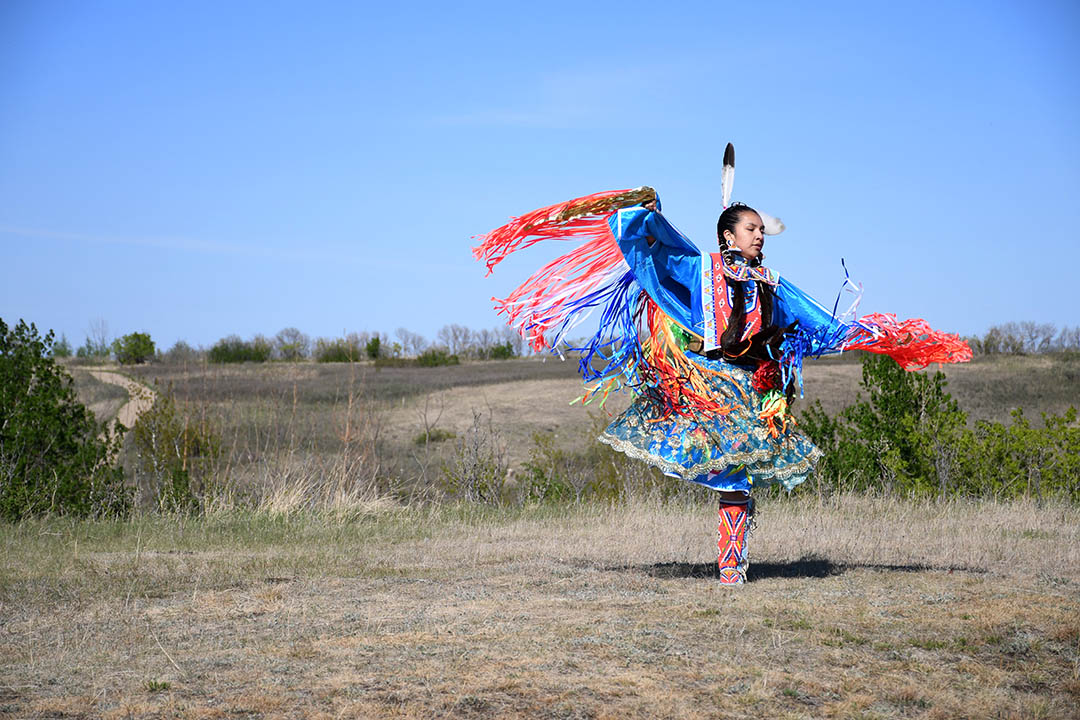
New USask-based Indigenous centre for research on HIV, HCV and STBBI launches in Saskatoon
A new regional centre for Indigenous research on HIV, Hepatitis C Virus (HCV) and sexually transmitted blood-borne illness (STBBI), based at the University of Saskatchewan (USask), was officially launched on June 21.
By Sarah MacDonald and Creeden Martell, waniska Centre communicationsThe waniska Centre for HIV, Hepatitis C Virus (HCV) and sexually transmitted blood-borne illness (STBBI), which will serve Saskatchewan and Manitoba, celebrated its start lived-streamed from the Wanuskewin Heritage Park. The launch featured speakers, ceremonialists and performances from Indigenous dancers and musicians from both provinces.
The celebration reflected the good work that is to come as the researchers from the centre, which is funded by the Canadian Institutes of Health Research, partner with community, academics and others to address the issues of HIV/HCV/STBBI in Indigenous communities in a good way.
Rates of HIV, HCV and STBBI among Indigenous people in Saskatchewan and Manitoba are higher than national rates, making it imperative to address the diseases in ways that are relevant to the people.
“We really wanted the opportunity to interlink with each other in critical partnerships that span an artificial border imposed on this region by colonization. We felt this would be among the best ways to address HIV/HCV/STBBI inequities experienced by Indigenous people in these territories,” said Dr. Alexandra King (MD), Cameco Chair in Indigenous Health and Wellness at the USask and the waniska Centre’s lead researcher, during her keynote address.
“We want to work with communities and really be creating community-led, community-centric, Indigenous-led research,” King added.
The launch coincided with National Indigenous People’s Day in Canada, and the summer solstice, a time of celebration for Indigenous people who have gathered together for centuries on this special day. King also noted that the day is important for another reason.
“It is a time to reflect on what is in short supply, and at this time of year, it is the nighttime hours, the time we take to dream and vision. Therefore, it is also critically important that we engage in dreaming for those who are to come and how to create a better world for them,” she reflected.
The waniska Centre’s aim is to engage Indigenous communities and people in research that is focused on Indigenous knowledge and the land to develop, explore, and scale up promising and wise practices, using both an Indigenous and Western lens in what is dubbed etuaptmumk (a Two-eyed Seeing approach).
The team at waniska will work with communities and academics, and train the next generation of Indigenous scholars, practitioners and community members in HIV/HCV/STBBI research. Land- and culture-based solutions-focused research will create innovative practices, leading to health system transformation and improved health outcomes.
“We really want to focus on Indigenous ways of knowing, being and doing, with the knowledge that arises from these lands and waters. We wanted to do so in a way that would allow us to develop and innovate science and research projects that brought in Indigenous ways of knowing and doing,” King explained.
The waniska Centre will build its own capacity to conduct research through partnerships with Indigenous and non-Indigenous experts in the field of Indigenous health and HIV/HCV/STBBI research.
“I hope that the centre can make it easier for communities to do the research and programming that is beneficial to their members. As institutions, universities need to change the way they engage with communities for research and take on an equitable approach, which means going to them and asking what they need and learning from them,” said Rebecca Zagozewski, research manager for the waniska Centre.
The launch also featured several other speakers including Cora Sellers, an Inuvialuit mother and current senior director of housing for the YWCA Regina, Jacqueline Flett, a nehiyaw woman with lived experience with HIV, Michael Redhead Champagne, an award-winning youth organizer from Shamattawa First Nation, Jodie Albert, a nehiyaw woman from the Ahtahkakoop Cree Nation who has lived experience with hepatitis C, and Margaret Kîsikâw Piyêsîs, the CEO of the Canadian Aboriginal AIDS Network and the finance and research director of All Nations Hope Network in Regina.
The speakers were complemented by a number of Indigenous ceremonialists and performers, including Harvey Thunderchild, who opened the launch with a flag song and prayer, powwow dancers TJ Warren, Laryn Oakes and Hunter Blassingame, Inuit throat singing group Silla & Rise, Métis fiddlers Boyers’ Métis Music, and Two-Spirit and trans jingle dancer Gayle Pruden.
The event was moderated by Jennifer Quesnel, a Saskatoon-based Métis journalist and the host and editor of Researchers Under the Scope, a bi-weekly podcast for the Office of the Vice-Dean of Research at USask’s College of Medicine.
